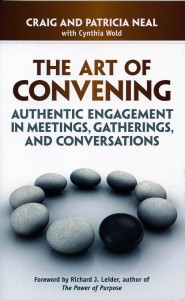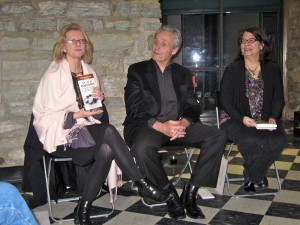#386 – Dick Bernard: My 2:43 Speech*, and some thoughts on Climate Change
* June 17, in this space, I related a dream about a 2:43 speech.
Here’s my version of that speech, considerably shorter than two minutes.
“Speak your truth to others, particularly those who may disagree with you. Listen. Learn. Participate. Keep open the possibility that there may be flaws in what you believe to be true. Listen outward, beyond your own preferred circle, at least as much as you listen inward to people who share your own beliefs. Imagine being in a circle. Usually, in our ever-more polarized society, we sit exclusively in circles, looking inward, with people who share our point of view. To do so is to deny the much greater world behind our backs, outside our circle: other circles with other legitimate points of view….”
What Professor Abraham’s talk on Climate Change on Thursday night did was to not only shake loose my dream; but cause me to articulate it publicly.
Dreams are private happenings. I haven’t studied dreams but at minimum they are our own brains speaking when the clutter of the conscious world has quieted.
In the context of Thursday, during the question time, I had written my question on a card for the Professor: “Was Al Gore correct in Inconvenient Truth?”
Doubtless, this is a common question to a Climate Scientist, and to my recollection, the Professor’s answer was brisk and with no hesitation: “Probably 90% accurate”, he said, relating a couple of areas where Mr. Gore’s analysis might have been a bit off target.
He suggested directly that the flap over Gore’s analysis was a good example of the clash between science and politics. Because Gore had been pigeon-holed as having a certain political point-of-view, his enemies had to dismiss his arguments, regardless of the truth they might contain. Enemies are, after all, never right.
Dr. Abraham didn’t mention the impact of belief, though he could have: often we say, “I don’t care what the facts are. This is what I believe.” It is an easy dodge of an unpleasant reality, but that doesn’t change the reality.
He went on to the next question, and I thought to myself in school boy terms: 90% would get a grade of A or A-.
A pretty good grade, I’d say. Not only that, but Mr. Gore brought the issue out of the shadows of public discussion.
Towards the talks conclusion, Prof. Abraham commented on the disagreement about the state of Mother Earth, and human impact on this condition called Climate Change. He proposed a manner of looking at this, using the analogy of a person knowing something was not right, and seeking a doctors opinion, and then a second opinion and third and so on. By the end, 100 opinions had been received, 97 of these agreeing on the diagnosis; with the remaining three equivocating about or denying the problem. Would the reasonable person go with the 97 concurring opinions, or with the three dissenting? It’s a choice after all.
The 3% dissenters have been remarkably successful in disputing Climate Change. All they need to do is to sow doubt, Dr. Abraham said. But as with the person who denies a medical condition until it is too late to do anything about it but die, so can humanity, particularly those of us in the so-called ‘developed world’, do ourselves in…in much shorter a time span than we might think.
I sat there thinking about other issues of the day, as peace and war, the economy, relations with others, etc., etc., etc. His talk had come in the midst of a particularly rich – and also absurd – political week in both my life and in the national conversation, so that ‘noise’ bounced around for me as well.
I close as I began: “Speak your truth to others, particularly those who may disagree with you. Listen. Learn. Participate. Keep open the possibility that there may be flaws in what you believe to be true. Listen outward, beyond your own preferred circle, at least as much as you listen inward to people who share your own beliefs. Imagine being in a circle. Usually, in our ever-more polarized society, we sit exclusively in circles, looking inward, with people who share our point of view. To do so is to deny the much greater world behind our backs, outside our circle: other circles with other legitimate points of view….”
Here’s to conversation – to dialogue. Here’s to action.


